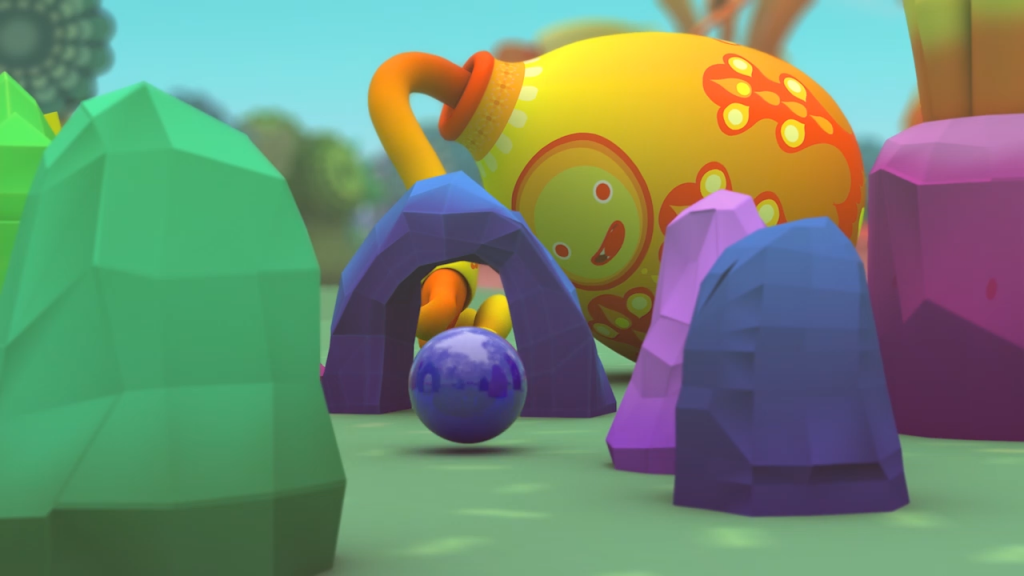
Lost Marble
Many adults would like to understand more about why Buddi catches children’s
attention so powerfully. Parents are understandably cautious about what material their children view. At Buddi World, we care deeply about our young audience and we want to provide parents with a deeper insight into why their children love our show so much and the positive things they are getting out of each episode. We will be publishing articles every Friday in order to provide insightful information about how Buddi has a positive educational and sensory impact on children.
The next episode we are going to examine is the third episode of Buddis first series ‘Lost Marble’.
Story
The Buddi’s are playing with a beautiful marble but Kelta does not seem to be willing to share it with his friends. Since Kelta does not want to share, all the other Buddi’s decide to go play somewhere else leaving Kelta alone.
Kelta does not seem to mind and keeps playing on his own until he loses the marble. He accidentally threw it at the bottom of a pond and now he can’t get it back. He starts looking for his friends to help him but, once he finds them, he realises that they were really hurt by his selfish behaviour.
Kelta is truly sorry to not have shared his marble with his friends so the Buddi’s decide to forgive him and help him get the marble back. Once the Buddis manage to get the marble back, they can finally play and have fun with it all together!
Themes
The episode deals with three main topics: sharing, forgiveness and the importance of collaborating.
As any toddler or preschooler would have done, Kelta is having so much fun with his marble that he would rather play alone with it than share it with his friends. This behaviour is extremely common in young children and therefore provides an easy situation for your child to relate to.
However, once Kelta loses his marbles he realises that also his friends are gone and he needs them to get his marble back. Here’s the second key theme of the episode, forgiveness. Even if Kelta really hurt his friends, they can recognise that he regrets his mistake and they decide to forgive him. This topic is extremely important for children to understand that it is ok to make mistakes, as long as you are able to learn from them.
Finally, although Kelta was not able to get his marble back on his own, he can once he is reunited with his four best friends. This demonstrates the importance of collaboration and the results we can achieve if we join forces.
Educational
Learning the importance of sharing from such a young age is key for children’s development. Children need to learn to share so they can make and keep friends, play cooperatively, take turns, negotiate and cope with disappointment.
For very young children, sharing might be more challenging than for older children. This is simply because toddlers do not yet understand the concept of sharing. If your baby sees another child with a toy that he really likes, then his natural reaction is going to be to pretend that toy.
For preschoolers the situation is already different, they have a clearer understanding of what sharing means, but this does not mean that they will like it. However, even if your child does not yet enjoy sharing, it is important to keep encouraging him/her to do so:. Sharing also teaches children about compromise and fairness. They learn that if we give a little to others, we can get some of what we want too, and this concept will come in handy also in adulthood.
School-aged children should already have a much deeper understanding of sharing and also a higher consideration of other people’s feelings. Making sure that your child is already familiar with the concept of sharing by the time he enters school will be key to help him/her form deep and complex friendships.
Resources
https://raisingchildren.net.au/toddlers/behaviour/friends-siblings/sharing
